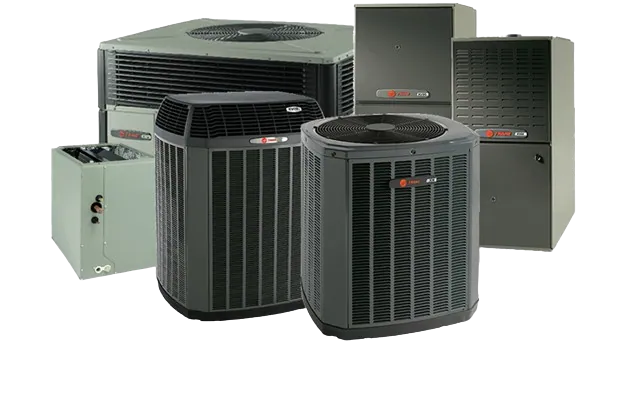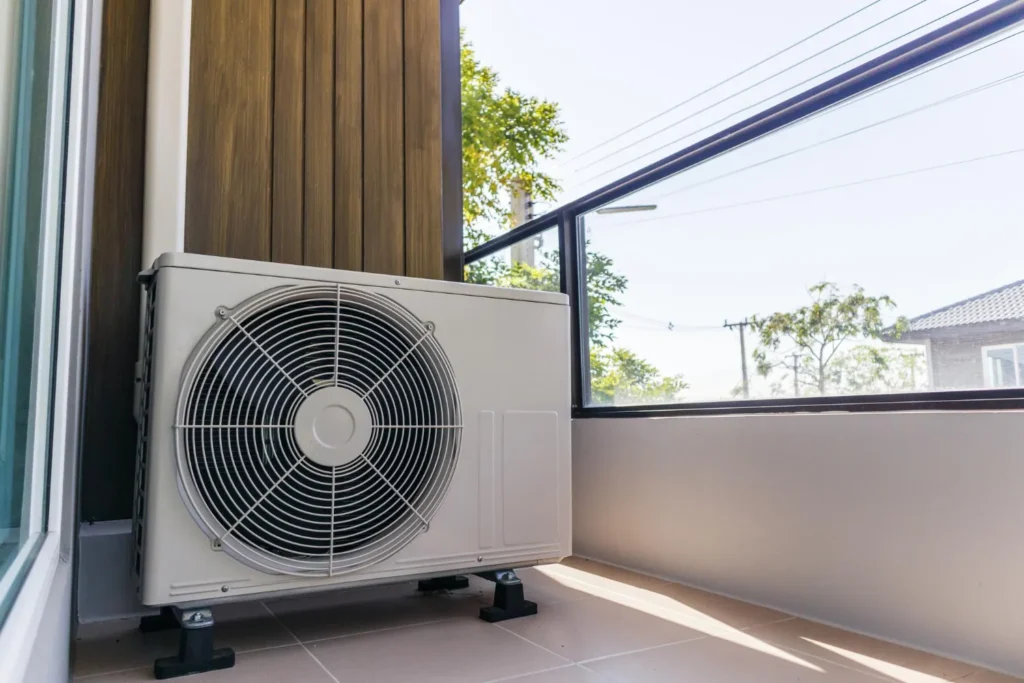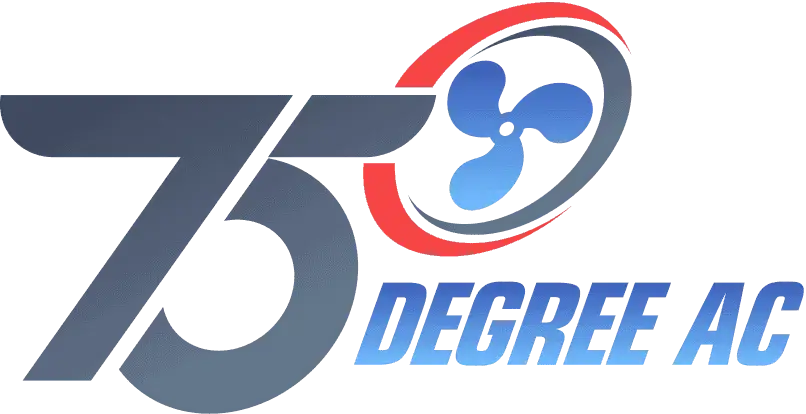Table of Contents
ToggleExperience the best in comfort with our HVAC services in Sugar Land, TX

Our licenses & Achievement
Celebrating a job well done
75 Degree AC – AC repair Air Conditioning & Heating Service Sugar Land
LIC #TACLA72152E
(Texas Department of Licensing and Regulations)




#1 Trusted Sugar Land HVAC Services
Regarding trusted HVAC services in Sugar Land, look no further than 75 Degree AC Repair. With a reputation built on trust, reliability, and quality craftsmanship, we’re the go-to choice for homeowners and businesses. Our licensed and insured professionals have over 15 years of experience serving the community, ensuring that your HVAC needs are handled with expertise and care. Whether you need installation, maintenance, or repair services, you can always count on us to deliver exceptional results.
Best HVAC Companies in Sugar Land, TX
In a sea of HVAC companies in Sugar Land, TX, 75 Degree AC Repair stands out as the best. With a commitment to excellence and customer satisfaction, we’ve earned a reputation as the top choice for HVAC services in the area. Our team of skilled technicians is equipped with the knowledge and expertise to tackle any HVAC project, big or small. From routine maintenance to complex installations, we strive to exceed expectations and deliver superior service to every customer.
Regarding HVAC services in Sugar Land, TX, 75 Degree AC Repair is the undisputed number one choice. With our unparalleled expertise, dedication to quality, and commitment to customer satisfaction, we’ve earned the trust of homeowners and businesses throughout the area. From prompt and reliable service to top-notch craftsmanship, we go above and beyond to ensure that your HVAC needs are met with excellence.

Reliable Heating Services for Sugar Land Homeowners
Keep your home warm and cozy all winter with reliable heating services from 75 Degree AC Repair. As a trusted HVAC contractor in Sugar Land, we understand the importance of a properly functioning heating system during the chilly months. Whether you need a tune-up, repair, or replacement, our team is here to provide prompt and professional service you can rely on. Trust us to keep your home comfortable and your heating system running smoothly.
What Our Customers Have To Say?
Kenny was nothing short of professional. He actually came out to my home right away, which was greatly appreciated as I didn’t have to rearrange my schedule to accommodate a later appointment. He was able to restore heat to my home efficiently and quickly while also providing tips on how to preserve the longevity of my A/C unit. 100% satisfied!
Between noticing that AC had problem & getting it fixed was 2 hours. Best service ever. Didn’t push to replace whole unit as most companies do. Kenny said he would be there between 7&8pm. Arrived at 7pm, evaluated the problem and changed out the broken capacitor in 15min. Recommend to anyone
After purchasing a home in the beginning of the year, I dealt with two AC related issues in May (evaporator coil install) and June (outdoor condenser replacement due to irrepararable leaks). Kenny and his team is extremely reliable delivering on overall service. This is my AC guy!
Why Choose 75Degree AC for HVAC Services in Sugar Land, TX?
Why choose 75 Degree AC for HVAC services in Sugar Land, TX? The answer is simple: we offer unbeatable expertise, reliability, and customer satisfaction. With our team of licensed and insured professionals, top-rated service, and dedication to excellence, we’re the clear choice for all your HVAC needs.
Whether you need installation, maintenance, or repair services, you can always trust us to deliver exceptional results. Contact us today to experience the 75 Degree AC difference.
Frequently Asked Questions
The main difference between AC (Air Conditioning) and HVAC (Heating, Ventilation, and Air Conditioning) lies in their scope and functionality.
AC refers to systems that cool indoor air, typically using refrigeration cycles to remove heat and moisture. On the other hand, HVAC encompasses a broader range of functions, including heating, ventilation, and air conditioning.
HVAC systems are excellent and heat indoor spaces, ensuring proper air circulation and ventilation. While AC is a subset of HVAC, HVAC systems are more comprehensive and versatile, providing year-round comfort and indoor air quality control.
The four main types of HVAC systems are:
- Split Systems: Split systems consist of indoor and outdoor units, with the indoor unit containing the evaporator coil and air handler and the outdoor unit housing the compressor and condenser coil.
- Packaged Systems: Packaged systems contain all components, including the compressor, condenser, and evaporator, in a single unit typically installed outdoors. They are suitable for smaller spaces and do not require indoor equipment.
- Ductless Mini-Split Systems: Ductless mini-split systems consist of individual indoor units connected to an outdoor compressor/condenser unit via refrigerant lines. They offer zone-based heating and cooling without the need for ductwork.
- Hybrid Systems: Hybrid systems, or dual-fuel systems, combine a heat pump with a gas furnace, providing electric heating and cooling capabilities. They automatically switch between gas and electric heating based on outdoor temperatures for optimal efficiency.
Each type of HVAC system has advantages and is suitable for different applications, depending on space requirements, climate, and energy efficiency goals.
No, HVAC is not only for AC (Air Conditioning). While air conditioning is a crucial component of HVAC systems, HVAC encompasses a broader range of functions, including heating, ventilation, and air conditioning.
HVAC systems provide comprehensive climate control solutions for indoor spaces, ensuring year-round comfort, air quality, and energy efficiency.
In addition to cooling, HVAC systems can heat indoor spaces using furnaces, heat pumps, or other heating equipment, and they also incorporate ventilation systems to circulate and exchange indoor and outdoor air.
HVAC systems are essential for maintaining comfortable and healthy indoor environments in residential, commercial, and industrial buildings.
HVAC basics (Heating, Ventilation, and Air Conditioning) involve understanding the principles and components of systems that control indoor climate and air quality. Critical aspects of HVAC basics include:
- Heating: Heating systems, such as furnaces or heat pumps, generate warmth to maintain comfortable indoor temperatures during cold weather.
- Ventilation: Ventilation systems exchange indoor and outdoor air to remove pollutants, regulate humidity, and replenish oxygen levels, promoting indoor air quality and comfort.
- Air Conditioning: Air conditioning systems cool indoor air by removing heat and moisture, typically using refrigeration cycles, to maintain desired temperatures during hot weather.
- Thermostats: Thermostats control HVAC systems by sensing indoor temperatures and activating heating or cooling to maintain setpoint temperatures.
Understanding these basics is essential for HVAC technicians to effectively design, install, maintain, and repair HVAC systems.
Learning HVAC (Heating, Ventilation, and Air Conditioning) can be challenging due to the technical nature of the field and the diverse range of skills and knowledge required.
HVAC training typically involves studying thermodynamics, refrigeration cycles, electrical systems, HVAC equipment, ductwork design, and troubleshooting techniques.
Additionally, hands-on experience through apprenticeships or vocational programs is essential for gaining practical skills and proficiency in HVAC installation, maintenance, and repair.
While learning HVAC may require dedication and effort, the rewarding career opportunities and the ability to impact indoor comfort and air quality positively make it a worthwhile endeavor for aspiring HVAC professionals.
The time it takes to learn the basics of HVAC (Heating, Ventilation, and Air Conditioning) can vary depending on individual learning pace, educational background, and depth of study.
Some people may acquire basic HVAC knowledge through short courses or introductory programs in weeks or months. In contrast, others may opt for more comprehensive training through vocational schools, community colleges, or apprenticeship programs, which can take one to two years to complete.
Additionally, gaining hands-on experience through on-the-job training or internships is crucial for applying theoretical knowledge and developing practical HVAC installation, maintenance, and repair skills.
With dedication and commitment, aspiring HVAC professionals can acquire the basics of HVAC within a reasonable timeframe and embark on a rewarding career in the field.
